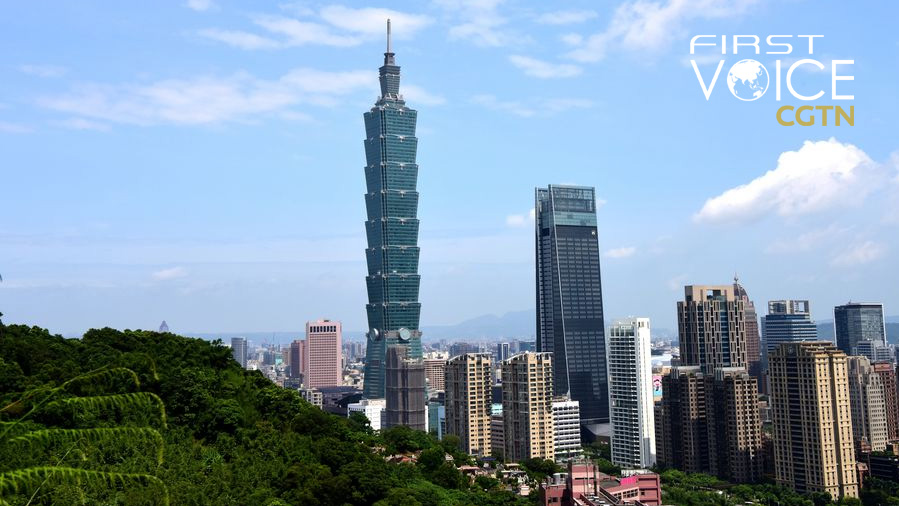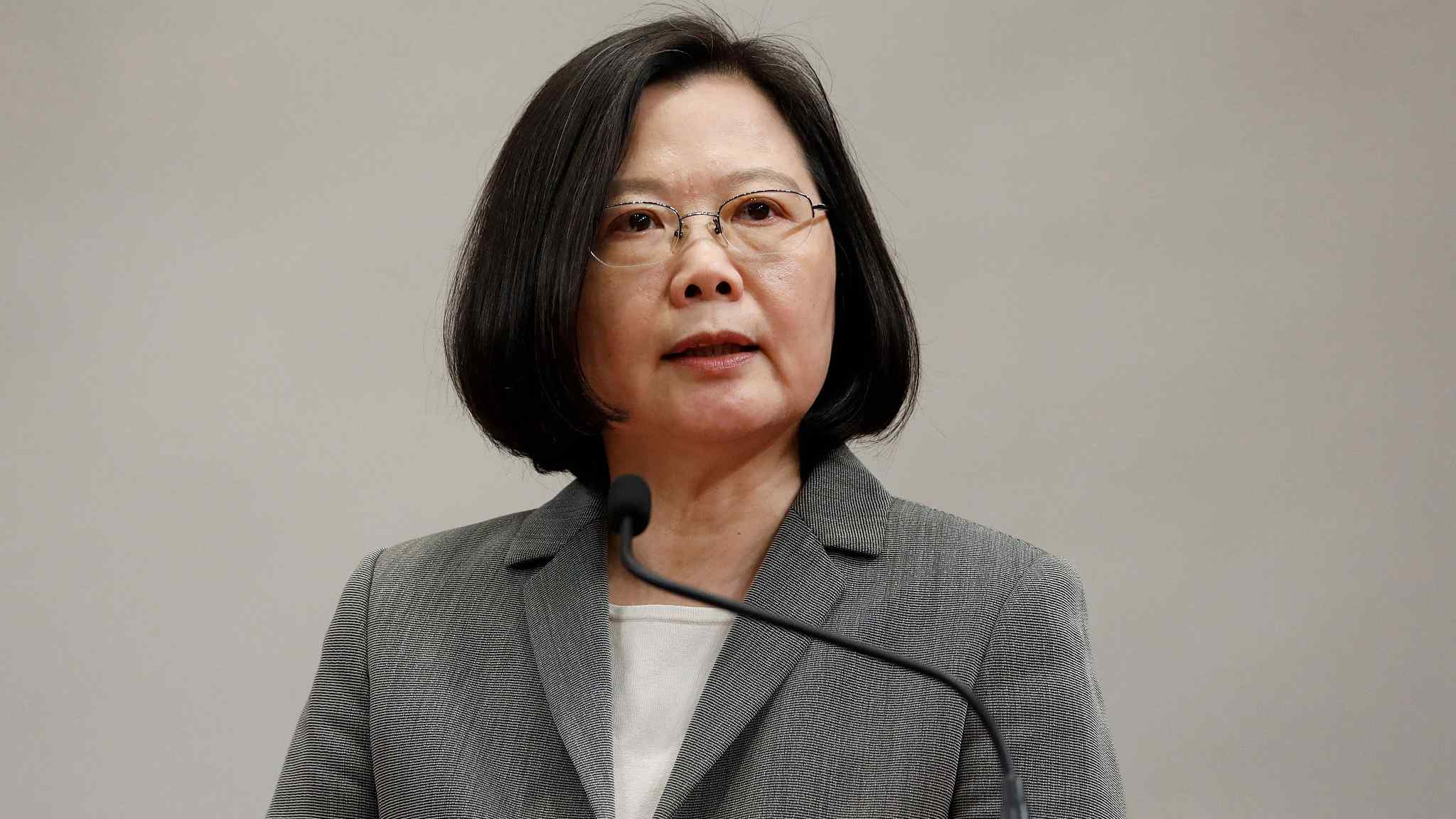
Taipei 101 skyscraper in Taipei, southeast China's Taiwan. /Xinhua
Taipei 101 skyscraper in Taipei, southeast China's Taiwan. /Xinhua
Editor's note: CGTN's First Voice provides instant commentary on breaking stories. The daily column clarifies emerging issues and better defines the news agenda, offering a Chinese perspective on the latest global events.
On Wednesday, China's Taiwan Affairs Office spokesperson Zhu Fenglian stated the Chinese government was preparing a "list of die-hard Taiwan secessionists" who would be on a black list for supporting the island's formal separation from the mainland.
Although the list has not yet been revealed, the Global Times reported that it may include the island's senior officials, affiliated with the Democratic Progressive Party (DPP), who have relentlessly sought to deny the one-China principle and promote independence.
Cross-strait relations have deteriorated under the auspices of Tsai Ing-wen, with the DPP also cracking down on anything in the island deemed to be pro-Beijing.
Many in the world, especially in the West, do not understand China's Taiwan policy and why it constitutes a "core interest" of the country. This is not about aggression or expansionism. It never was. This is about sustaining and upholding what has always been China's sovereign territory, allowing no foreign interference and aggression.
It is defensive, not offensive. Taiwan is a part of China. But the West is eager to backtrack on it for ideological and geopolitical reasons. The Chinese central government will not accept this, and is prepared to enforce their red lines and turn the screws on leading separatists without harming the island as a whole.

Tsai Ing-wen, leader of the DPP in Taiwan, China. /Xinhua
Tsai Ing-wen, leader of the DPP in Taiwan, China. /Xinhua
Understanding the one-China policy
Taiwan is a part of China, but was ceded to Japan in an unfair treaty in 1895. The year of 1945 marked the end of the 50-year Japanese occupation of Taiwan.
In 1949, the Kuomindang (KMT) party lost the Chinese Civil War to the Communist Party of China, and subsequently the Republic of China ceased to exist as a legitimate government.
Chiang Kai Shek, the then KMT leader, fled to Taiwan and the island was given military protection by the United States, preventing formal reunification from taking place.
In 1971, UN General Assembly Resolution 2758 set out that the People's Republic of China (PRC) constituted the only lawful representative of China and thus the PRC obtained the seat of "China" at the United Nations previously occupied by the Republic of China.
In line with this, Beijing has requested other countries to accept the one-China policy as a prerequisite for diplomatic relations. Most countries have already accepted this principle and respected the one-China position. However, the Taiwan issue has not yet been resolved.
Resisting separatism
Despite this, the idea that Taiwan should be formally independent and permanently separate from China has gained traction in recent years as geopolitical reality has changed owing to a rising China. Many in the U.S., who have for decades groomed the island as a strategic bulwark against the Chinese mainland, have encouraged separatism, especially under the Trump administration.
The chaos and unrest in Hong Kong was also used to advocate this agenda and embolden Tsai, who was previously unpopular for having alienated the region from the Chinese mainland. All of this constitutes an attempt to violate China's national sovereignty as a whole.
The Western media like to portray the Chinese central government's reactions as acts of aggression. This is extremely misleading. China reserves the right to take any action necessary to prevent its territorial integrity being undermined. This includes prudent action against leading separatist figures.
In summary, the world should know, understand and accept the one-China policy. China is defending its rightful and lawful claims from foreign-induced separatism and, like any nation on Earth, is not prepared to compromise on this.
Ideology does not give the West the right to promote the breakup of China. Taiwan is not up for debate.
(If you want to contribute and have specific expertise, please contact us at opinions@cgtn.com.)

